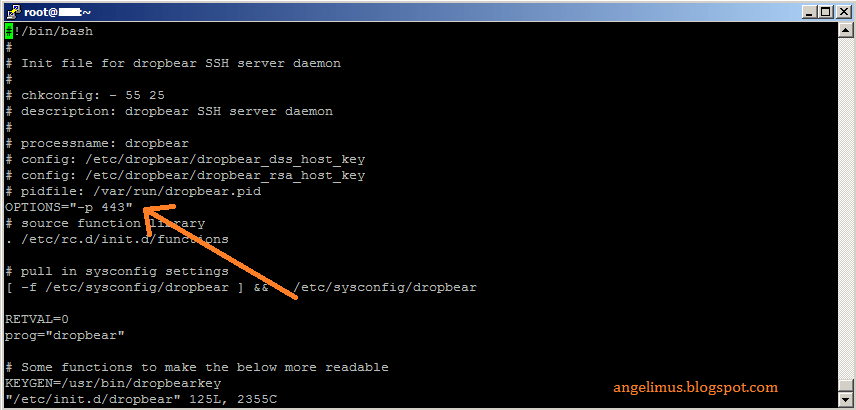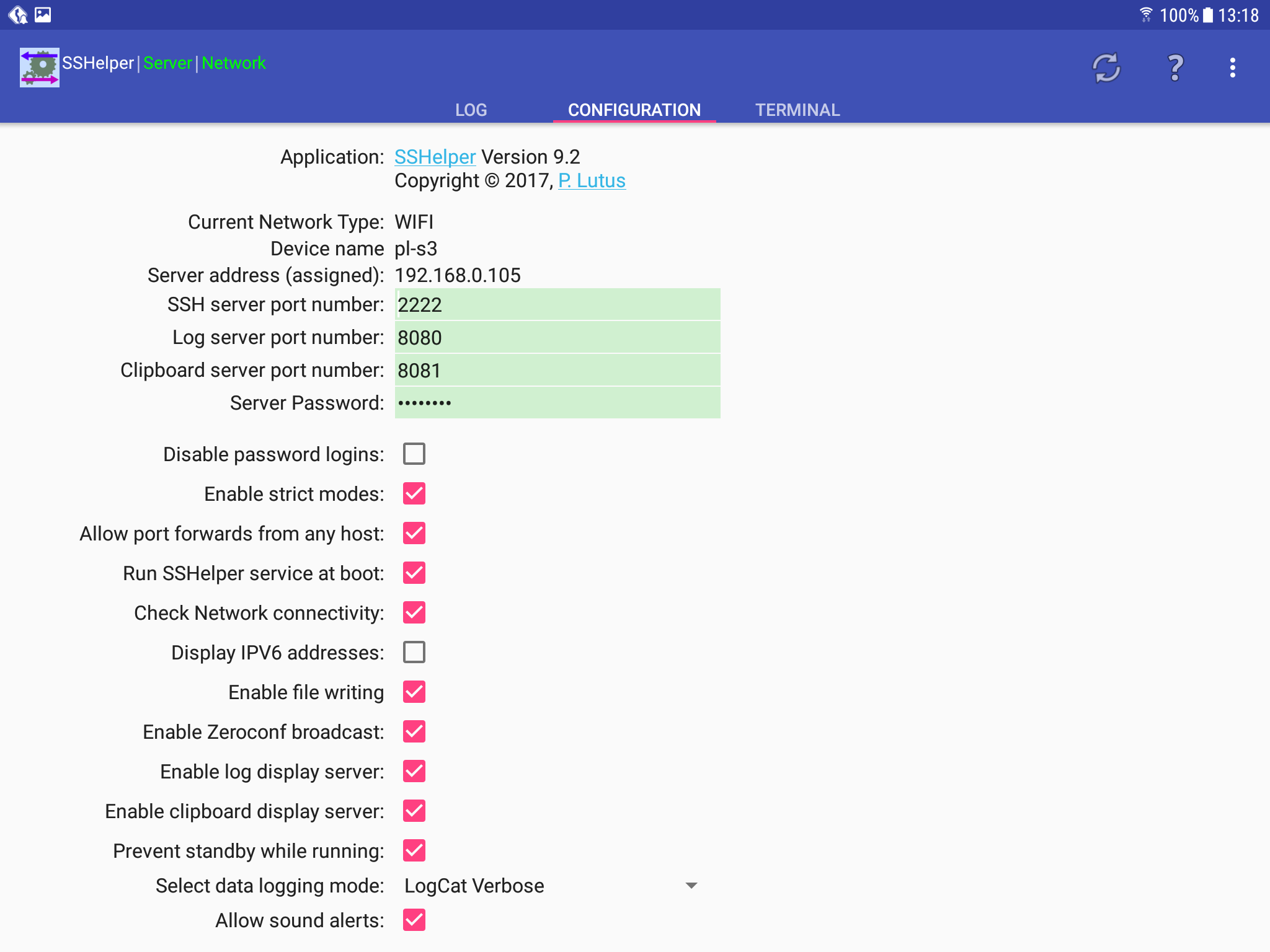
- #DROPBEAR SSH SERVER 2013.59 MULTIPLE VULNERABILITIES UPDATE#
- #DROPBEAR SSH SERVER 2013.59 MULTIPLE VULNERABILITIES CODE#
- #DROPBEAR SSH SERVER 2013.59 MULTIPLE VULNERABILITIES PASSWORD#
- #DROPBEAR SSH SERVER 2013.59 MULTIPLE VULNERABILITIES FREE#
#DROPBEAR SSH SERVER 2013.59 MULTIPLE VULNERABILITIES CODE#
Use-after-free vulnerability in Dropbear SSH Server 0.52 through 2012.54, when command restriction and public key authentication are enabled, allows remote authenticated users to execute arbitrary code and bypass command restrictions via multiple crafted command requests, related to "channels concurrency. The buf_decompress function in packet.c in Dropbear SSH Server before 2013.59 allows remote attackers to cause a denial of service (memory consumption) via a compressed packet that has a large size when it is decompressed. Published: Ma6:59:03 AM -0400ĭropbear SSH Server before 2013.59 generates error messages for a failed logon attempt with different time delays depending on whether the user account exists, which allows remote attackers to discover valid usernames. Published: Ma11:59:00 AM -0500ĬRLF injection vulnerability in Dropbear SSH before 2016.72 allows remote authenticated users to bypass intended shell-command restrictions via crafted X11 forwarding data. Published: Ma11:59:00 AM -0500įormat string vulnerability in Dropbear SSH before 2016.74 allows remote attackers to execute arbitrary code via format string specifiers in the (1) username or (2) host argument. The dropbearconvert command in Dropbear SSH before 2016.74 allows attackers to execute arbitrary code via a crafted OpenSSH key file. The dbclient in Dropbear SSH before 2016.74 allows remote attackers to execute arbitrary code via a crafted (1) -m or (2) -c argument. The dbclient and server in Dropbear SSH before 2016.74, when compiled with DEBUG_TRACE, allows local users to read process memory via the -v argument, related to a failed remote ident.
#DROPBEAR SSH SERVER 2013.59 MULTIPLE VULNERABILITIES FREE#
The server in Dropbear before 2017.75 might allow post-authentication root remote code execution because of a double free in cleanup of TCP listeners when the -a option is enabled. This occurs because ~/.ssh/authorized_keys is read with root privileges and symlinks are followed. A new bug found in NFS server code which could allow a remote attacker to crash the NFS. NFS is standard on NAS (network attached storage) devices or sharing data for web servers.
#DROPBEAR SSH SERVER 2013.59 MULTIPLE VULNERABILITIES UPDATE#
Users can upload or update files on a remote NFS server.

Published: Aug9:29:00 PM -0400ĭropbear before 2017.75 might allow local users to read certain files as root, if the file has the authorized_keys file format with a command= option. The NFS (Network File System) is a server and client application that turn FreeBSD into a file sharing server. The recv_msg_userauth_request function in svr-auth.c in Dropbear through 2018.76 is prone to a user enumeration vulnerability because username validity affects how fields in SSH_MSG_USERAUTH messages are handled, a similar issue to CVE-2018-15473 in an unrelated codebase.
#DROPBEAR SSH SERVER 2013.59 MULTIPLE VULNERABILITIES PASSWORD#
When an invalid username is given, the GSSAPI authentication failure was incorrectly counted towards the maximum allowed number of password attempts. It was found that dropbear before version 2013.59 with GSSAPI leaks whether given username is valid or invalid. Published: Febru4:15:13 AM -0500ĭropbear 2011.54 through 2018.76 has an inconsistent failure delay that may lead to revealing valid usernames, a different issue than CVE-2018-15599. or an empty filename, a related issue to CVE-2018-20685. Note: References are provided for the convenience of the reader to help distinguish between vulnerabilities.

Much easier to work out what's going wrong with the debug output which includes filesystem permission in Dropbear before 2020.79 mishandles the filename of. The bufdecompress function in packet.c in Dropbear SSH Server before 2013.59 allows remote attackers to cause a denial of service (memory consumption) via a compressed packet that has a large size when it is decompressed. (IIRC, /var/log/auth.log on Debian-based distros /var/log/secure on RHEL/CentOS/Scientific.) Work out where your auth facility logs go and read them.( service sshd reload on RHEL/CentOS/Scientific.) A graceful reload will not drop existing sessions. Reload the SSH server using the mechanism provided by the distro. I only managed to locate the following platform-specific DDTS (UCS and Nexus 1000v for VMware). You want a line that reads LogLevel DEBUG in there somewhere. These sorts of filesystem permission issues will not show up with ssh -v, and they won't even show up in the sshd logs (!) until you set the log level to DEBUG.

Fix this via chown -R jane:jane /home/jane/.ssh What I mean by "can be made writable" is that if any of the parent directories are writable for anybody other than the user, users permitted to modify those directories can start modifying permissions in such a way that they can modify/replace authorized_keys.įurthermore, if the /home/username/.ssh directory is not owned by the user, and thus the user has no permissions to read the key you can run into problems: drwxr-xr-x 7 jane jane 4096 Jan 22 02:10 /home/janeĭrwx- 2 root root 4096 Jan 22 03:28 /home/jane/.ssh So, if authorized_keys is writable for anybody other than the user or can be made writable by anybody other than the user, it'll refuse to authenticate (unless sshd is configured with StrictModes no) As it hasn't been explicitly mentioned, sshd is by default very strict on permissions on for the authorized_keys files.


 0 kommentar(er)
0 kommentar(er)
